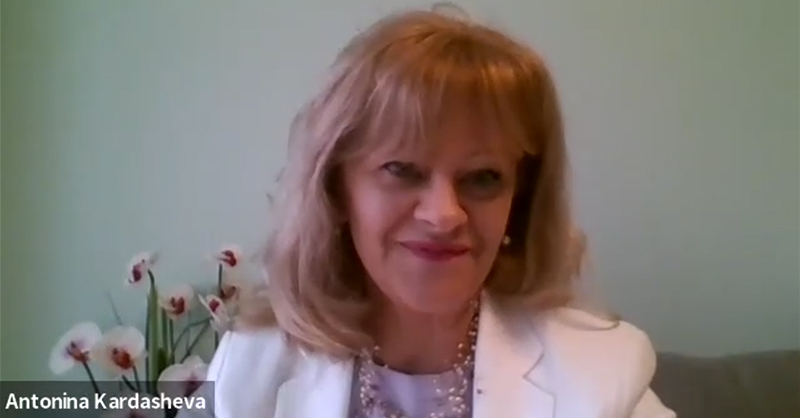
News by ICMCI in Skills of Tomorrow
In an online event on 14 March 2022 as part of the ICMCI Future of Management Consultancy initiative, John Pellitteri, PhD, Professor, Queens College, City University of New York, USA, President and Co-Founder of the International Society for Emotional Intelligence, and Antonina Kardasheva, CMC, PhD, Founder and Executive Director of the Foundation of for Developing Emotional Intelligence in Bulgaria, “unpacked” emotions as information to be used in specific contexts to the benefit of consultants and clients.
Antonina Kardasheva described emotional intelligence in general and emphasised that emotions are an integral part of what it means to adapt, think, reason and be intelligent. She highlighted how, with the help of emotional intelligence, people can navigate the unexpected, make good decisions, take optimal action to solve problems, communicate, cope with changes, as well as be healthy and happy and successful.
John Pellitteri focused on specific strategies and mindsets to help consultants use emotions as information and a powerful tool at many levels.
Emotional intelligence defined as a set of abilities for using emotional information in adaptive ways offers a conduit to understanding perceived and unconscious causes of actions and decisions.
Emotions can be “unpacked” as they are packages of personal-social information including:
• The factors (in the person or situation) that caused/created the emotion
• Individual’s needs associated with the emotion
• Action potential (e-motion)
• Personal meanings
In practice, clients “tell” consultants about themselves and their needs without words but “through” their emotions and consultants need to “listen deeply” to fully understand and show empathy. They thus act as detectives “deciphering codes” and unlocking the individual meanings and potentials for the clients to recognize.
Consultants have at their disposal an array of mindsets and strategies for adaptive workplace:
• Develop a mindset of being attentive to emotions
• Feel/sense your own and other’s emotions and reason through to understand meanings, causes and needs
• Plan emotional problem-solving strategies: What unproductive emotions need to change and what adaptive emotions would be more effective in workplace
• Manage your own emotional intensity so to see the actual problem clearly without distortions. Feelings are just feelings not reality
• Build positive interpersonal relationships
• Take a broad view of whole work environment
• Be flexible and willing to adjust your point of view, frame of thinking or your behaviors
• Reframe to develop new perspectives
• Show empathy /compassion for others
• Practice self-respect within the group
For further details, please see the event video.
About the presenters

John Pellitteri, PhD., is president and co-founder of the International Society for Emotional Intelligence (ISEI), a non-profit educational organization that promotes the global advancement of emotional intelligence theory, research and professional practice. He has conducted EI workshops and research presentations in numerous countries spanning every continent, including a TEDx talk in Lausanne, Switzerland. As professor at Queens College, City University of New York he trains professionals in the school and mental health counseling fields.
 Antonina Kardasheva, CMC is founder and executive director of the Foundation of for Developing Emotional Intelligence in Bulgaria and country coordinator of the International Society for Emotional Intelligence (ISEI). She holds a Ph.D. in psychological sciences and is a professor at the New Bulgarian University. In her consulting work, she helps companies with strategic management and provides services related to group dynamics training and soft skills, organizational behaviour and management of personal emotional investment.
Antonina Kardasheva, CMC is founder and executive director of the Foundation of for Developing Emotional Intelligence in Bulgaria and country coordinator of the International Society for Emotional Intelligence (ISEI). She holds a Ph.D. in psychological sciences and is a professor at the New Bulgarian University. In her consulting work, she helps companies with strategic management and provides services related to group dynamics training and soft skills, organizational behaviour and management of personal emotional investment.
About the Future of Management Consultancy
Combining a series of events, discussions and publications, the ICMCI Future of Management Consultancy initiative strives to promote the global conversation about the future of the profession towards developing a common vision to help and inspire consultants all over the world.
Designed as an “open source” and inclusive platform, the Future of Management Consultancy is an opportunity to seek answers to pressing questions and to encourage interactive communication and joint idea generation.






